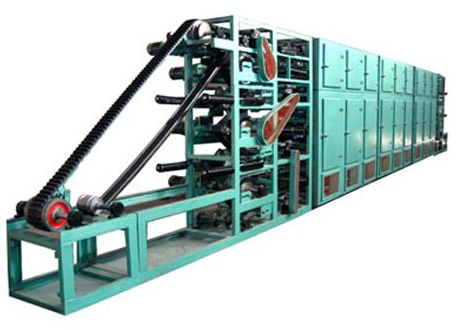Starting a welding electrode manufacturing business can be a profitable venture, given the growing demand in various industries such as construction, automotive, and shipbuilding. However, it requires careful planning, investment, and a thorough understanding of the manufacturing process. This guide will walk you through the essential steps to start your own welding electrode manufacturing business.
Understanding the Welding Electrode Manufacturing Process
The manufacturing of welding electrodes involves several steps, each requiring precision and quality control. The process generally includes the following stages:
1. Raw Material Selection
The first step in manufacturing welding electrodes is selecting high-quality raw materials. The core wire, usually made of mild steel, is the primary material. The flux coating, which provides stability during the welding process, is made from a mix of chemicals and minerals, including calcium carbonate, titanium dioxide, and cellulose. The quality of these materials directly impacts the performance of the welding electrode.
2. Wire Drawing
The selected steel wire is drawn to the required diameter using a wire drawing machine. This step ensures that the wire has the right thickness for the type of electrode being manufactured. Precision in wire drawing is crucial for maintaining consistent electrode size and performance.

Welding Electrodes Production Line
3. Flux Coating Preparation
The flux coating is prepared by mixing the selected chemicals and minerals in precise proportions. This mixture is then ground into a fine powder. The composition of the flux coating determines the electrode's welding properties, such as arc stability, slag formation, and penetration.
4. Coating the Wire
The wire is coated with the prepared flux using a coating machine. The flux is applied evenly around the wire to ensure consistent performance. The coating thickness can vary depending on the type of electrode being produced. After coating, the electrodes are allowed to dry to ensure the flux adheres properly to the wire.
5. Baking and Curing
Once coated, the electrodes are baked in a controlled environment to remove moisture and cure the flux coating. The baking process is critical for ensuring the electrodes are free of moisture, which can cause welding defects such as porosity. The electrodes are baked at a specific temperature and duration, depending on the type of coating used.
6. Quality Control
After baking, the electrodes undergo a series of quality control checks. These checks include visual inspection, weight measurement, and testing for mechanical properties like tensile strength and elongation. High-quality electrodes must meet industry standards and customer specifications.
7. Packaging and Distribution
Finally, the electrodes are packaged in moisture-resistant containers to prevent damage during storage and transportation. Proper packaging is essential to maintain the quality and usability of the electrodes. The packaged products are then distributed to wholesalers, retailers, or directly to end-users.
Key Considerations for Starting a Welding Electrode Manufacturing Business
Starting a welding electrode manufacturing business requires careful planning and consideration of several factors:
1. Market Research
Conduct thorough market research to understand the demand for different types of welding electrodes in your target market. Identify potential customers, competitors, and pricing strategies. This information will help you determine the types of electrodes to manufacture and the scale of production.
2. Investment and Financing
Setting up a welding electrode manufacturing unit requires significant investment in machinery, raw materials, and infrastructure. You may need to secure financing through loans, investors, or personal savings. Prepare a detailed business plan to present to potential investors or lenders.
3. Compliance with Standards
Welding electrodes must meet specific industry standards, such as AWS (American Welding Society) or ISO (International Organization for Standardization). Ensure your manufacturing process complies with these standards to produce high-quality products that meet customer expectations.
4. Skilled Workforce
Hiring skilled workers is essential for the success of your manufacturing business. This includes engineers, technicians, and quality control personnel who are experienced in the welding industry. Training programs may also be necessary to ensure your workforce is up to date with the latest manufacturing techniques and safety protocols.
5. Location and Infrastructure
Choose a suitable location for your manufacturing unit, considering factors such as proximity to raw material suppliers, availability of skilled labor, and access to transportation networks. The infrastructure should include facilities for raw material storage, production, quality control, and packaging.
Frequently Asked Questions About Welding Electrode Manufacturing
Q: What are the most common types of welding electrodes?
A: The most common types of welding electrodes include E6010, E6011, E6013, and E7018, each suited for different welding applications and materials. E6013, for example, is commonly used for general-purpose welding, while E7018 is preferred for structural welding due to its high tensile strength.
Q: How much investment is required to start a welding electrode manufacturing business?
A: The initial investment can vary depending on the scale of the operation. A small to medium-sized unit may require an investment of around $200,000 to $500,000, including costs for machinery, raw materials, and infrastructure. Larger operations may require higher investments.
Q: What are the key challenges in welding electrode manufacturing?
A: Key challenges include maintaining consistent product quality, complying with industry standards, managing raw material costs, and competing with established manufacturers. Proper planning, investment in quality control, and market research can help mitigate these challenges.
Q: Can I start a welding electrode manufacturing business on a small scale?
A: Yes, it is possible to start on a small scale and gradually expand as demand grows. Starting small allows you to manage costs effectively while building a reputation for quality. As your business grows, you can invest in more advanced machinery and increase production capacity.
By following these steps and considerations, you can successfully start and grow a welding electrode manufacturing business, catering to the needs of various industries and ensuring high-quality products.
View our website https://www.sino-welding.com to find the products you need, request a quote, or contact us for more assistance or additional information.






